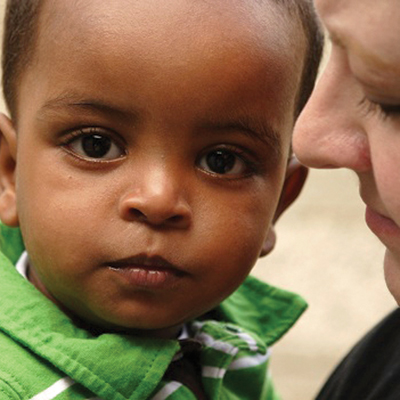
Imagine being pregnant for four years. For some adoptive parents, especially in cases with international children, the bureaucratic hoops they negotiate can have them waiting for their child for years. That vast difference from a nine-month pregnancy could contribute to post-adoption depression in new parents.
Karen Foli, assistant professor of nursing and an adoptive mother, knows the subject well. For her 2004 book, The Post-Adoption Blues: Overcoming the Unforeseen Challenges of Adoption, Foli interviewed 21 adoptive parents about their adoption and depression experiences, along with 11 adoption experts and professionals.
Foli has since furthered her research by asking some 400 adoptive parents to self-report through Web surveys. Working with Susan South, assistant professor of psychological sciences, Foli is hoping the quantitative data will lend support to her theory that expectations, either unrealized or unmet, may contribute to and predict parental post-adoption depression.
“Some parents shared that they did not anticipate that bonding with their child would be a struggle or that family members or friends would not offer the same support that birth parents enjoy,” Foli says.
The adoption paperwork itself can drain the parent’s time and energies, effectively taking away resources needed to prepare for parenting a child.
The resulting depression may manifest itself in depressed mood, decreased pleasure in activities, significant weight changes, trouble sleeping or excessive sleeping, feelings of agitation, fatigue, guilt and more.
“There’s also an incredible amount of fear from adoptive parents for disclosing this depression because they’re worried the child is going to be taken away from them,” Foli says. “It may be totally irrational or it may not be, but it’s tough to get them to disclose this to people who have authority over them.”
Most importantly, the child suffers when a parent is depressed. With an estimated 2 million adoptive parents in the United States, Foli’s research could be an eye-opener, perhaps even a mood lifter, for adoptive parents and their children.











